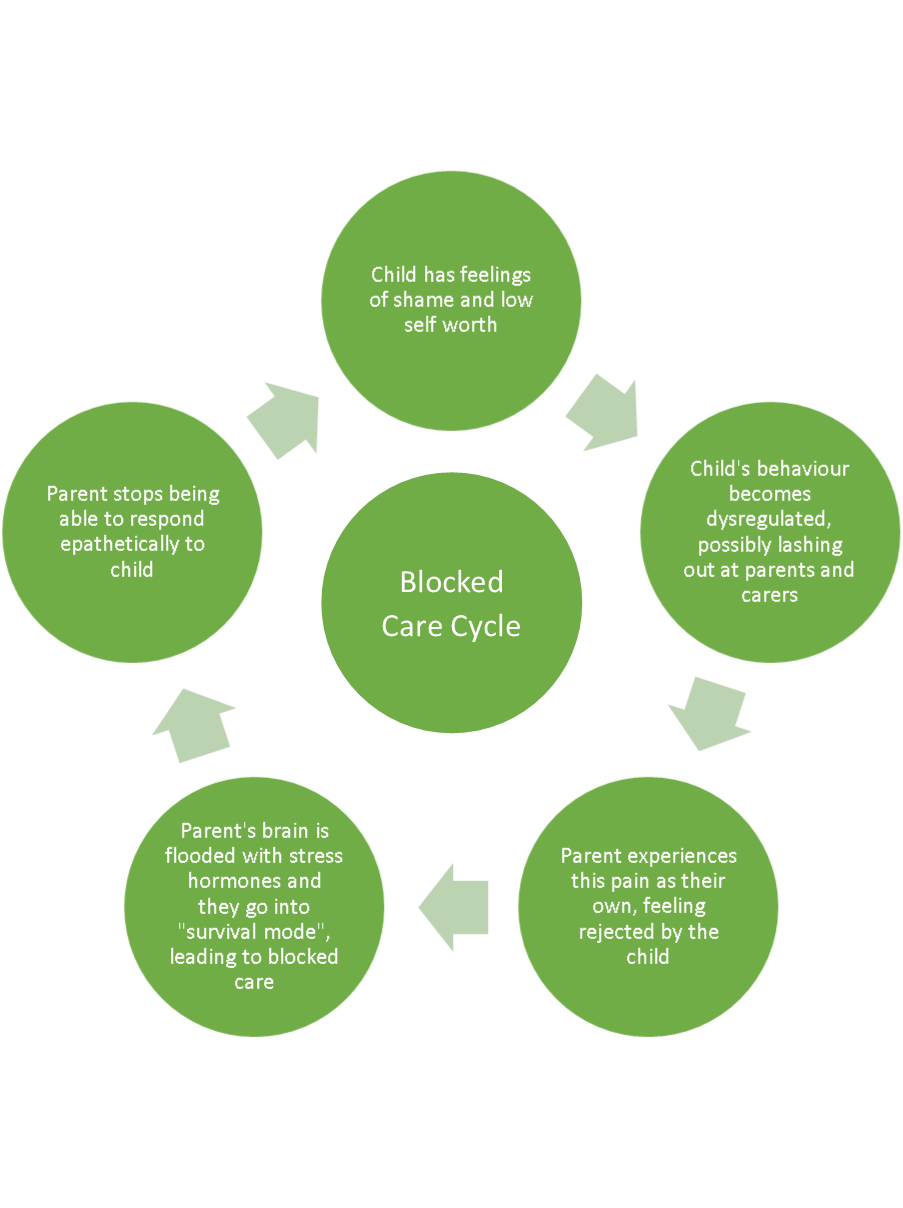Parents' Wellbeing
Parenting children always comes with highs and lows, but parenting traumatised children can be particularly emotionally draining and bring its own added challenges for parents. Trauma and neglect have a profound impact on the development of a child's brain, which can manifest into feelings of anxiety, dysregulated behaviour and difficulties developing attachments to their caregivers. This can be exhausting for parents, who may experience added stress, feelings of rejection, or secondary trauma from their children, making it difficult to experience the joys of parenting.
Blocked Care
Children who have experienced trauma are likely to project their bad feelings onto their parents through language or behaviour. Parenting traumatised children requires a level of empathetic parenting to allow carers to understand a child's traumatic history and to help them work through these feelings of shame and recover. Unfortunately, this kind of empathy can make a parent vulnerable to experiencing their child's trauma as their own and it may even trigger memories of trauma from their own pasts. As parenting children is essentially a 24/7 "job", parents may not have sufficient time to recover from this pain and process their own feelings.
The result of this is that parents may go into "survival mode" and may become unable to care empathetically for the child, possibly perceiving them as devious and unable to notice their vulnerability. This is known as blocked care.

Breaking The Cycle
When caring for a child, it is important to remember to take some time out to care for yourself. Taking time to relax, have fun and reconnect with yourself and others will give you the chance to express your emotions in a safe way and to process your feelings and reactions to reduce the feelings of shame and rejection. It's important for adoptive parents to have a support network of their own. See our page on Your Support Network for resources to share with family, friends, schools and churches.
Tips on reducing stress include:
- Reconnect and socialise with friends and family.
- Join a support group with other adopters and foster carers from providers such as the National Association of Therapeutic Parents
- Regular exercise to help burn up stress hormones
- Take some time to be reflective with yoga or meditation
- Consider coming to one of our courses for adopters to meet others and feel understood and supported.